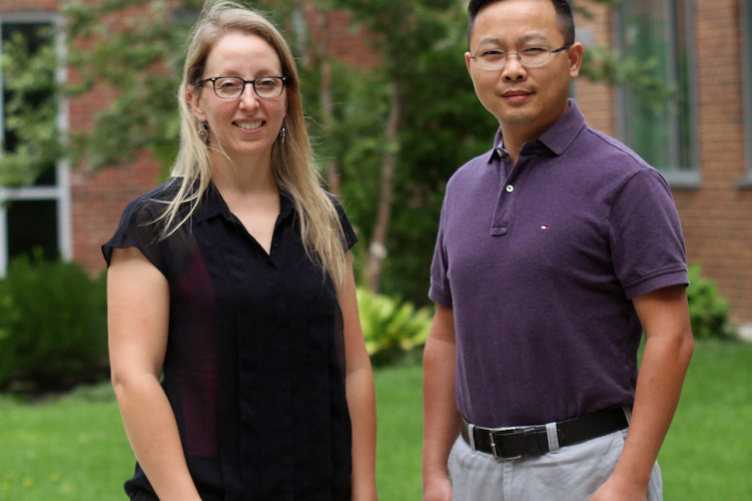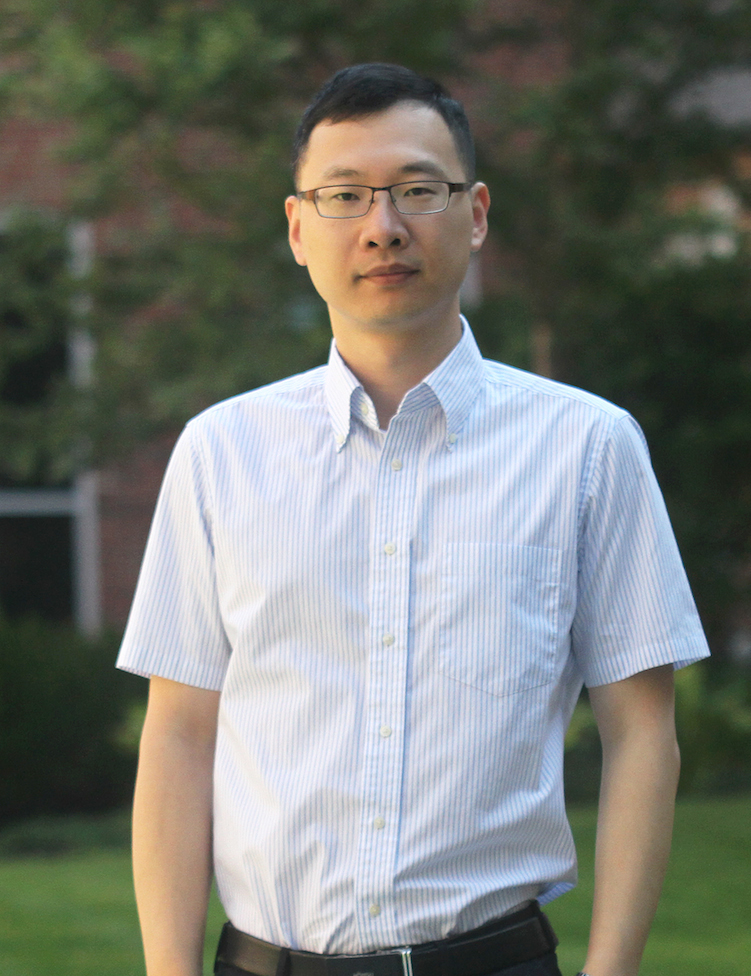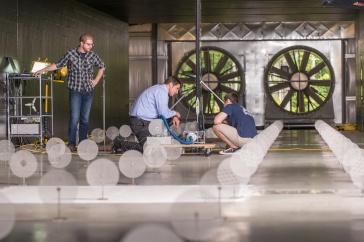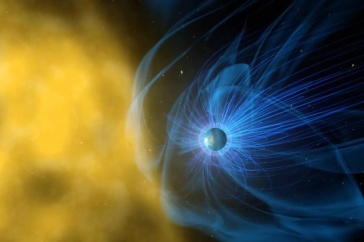
Christine Caputo, an assistant professor in chemistry, and Gonghu Li, an associate professor in chemistry and materials science
Three faculty members from the College of Engineering and Physical Sciences received highly competitive awards from the U.S. Department of Energy’s (DOE) Experimental Program to Stimulate Competitive Research (ESPCoR).
The two awards total nearly $1 million and were given to Gonghu Li, associate professor in chemistry and materials science, Christine Caputo, assistant professor in chemistry, and Jiadong Zang, assistant professor in physics and materials science. Their efforts aim to change the way we store data and convert sunlight into energy.
"These awards are great accomplishments that demonstrate the competitiveness of energy research being conducted by our faculty,” said Jan Nisbet, senior vice provost for research. “It also highlights the importance of collaboration in expanding our ability to explore complex problems.”
The DOE EPSCoR program, which granted just 12 awards this year, supports partnerships in energy-oriented research between faculty members from the 25 states that receive EPSCoR funding and scientists at the Department of Energy’s federally funded research and development centers. All three UNH faculty members will collaborate with scientists from Argonne National Laboratory in Illinois in their research.
Converting Sunlight into Fuels
Li and Caputo were awarded $598,335 for their proposal aimed at converting sunlight into liquid fuels that could heat homes, power cars, and more. The abstract of their proposal can be found here.
“In this project we hope to convert sunlight, carbon dioxide, and water into a liquid fuel,” says Caputo. “This is called a ‘solar fuel’ and the process is often referred to as ‘artificial photosynthesis’ because it mimics the fuel forming reaction carried out in plants.”
Currently sunlight can be converted into electricity using solar panels. However, Caputo notes that since electricity can’t easily be stored on a large scale, the production of energy stops when the sun goes down.
A very promising approach toward creating liquid fuels, similar to gasoline, is to make artificial photosynthesis more efficient by using materials that are abundant on earth. The research led by Li and Caputo will focus on efficient harvesting of solar energy and conversion of carbon dioxide into fuels using molecular catalysts and metal oxide nanoparticles. Li previously won an NSF CAREER award in 2014.
Improving Data Storage Capacity
Zang was awarded $387,262 for his research that seeks to improve the capacity and efficiency of data storage.

Currently, data storage is binary and two-dimensional. Zang hopes to design a game-changing technology that transforms it into three-dimensional, which would allow data to be stored and operated much more efficiently.
“We want to design future high-density information storage for computers and other devices,” said Zang. “In the era of big data, there is a real demand for this technology and finding the new technology to store it.”
The research is a study of the skyrmion – a new topological magnetization pattern named after the British physicist Tony Skyrme. The goal is to produce a new algorithm that deepens the understanding of the interplay between topology and magnetism that can be applied in industrial applications. According to Zang, researchers in Japan and Europe have dominated the field. This funded research greatly promotes the development of skyrmion physics in the U.S. and at UNH in particular. The abstract of his proposal can be found here.
Each awarded project includes support for undergraduate students, graduate students and postdoctoral fellows as active members of the research team.
“We hope our students will receive interdisciplinary training and learn how to conduct fundamental scientific research,” said Li. “We are also very excited to work with scientists at Argonne National Lab.”
-
Written By:
Brooks Payette | College of Engineering and Physical Sciences
















































